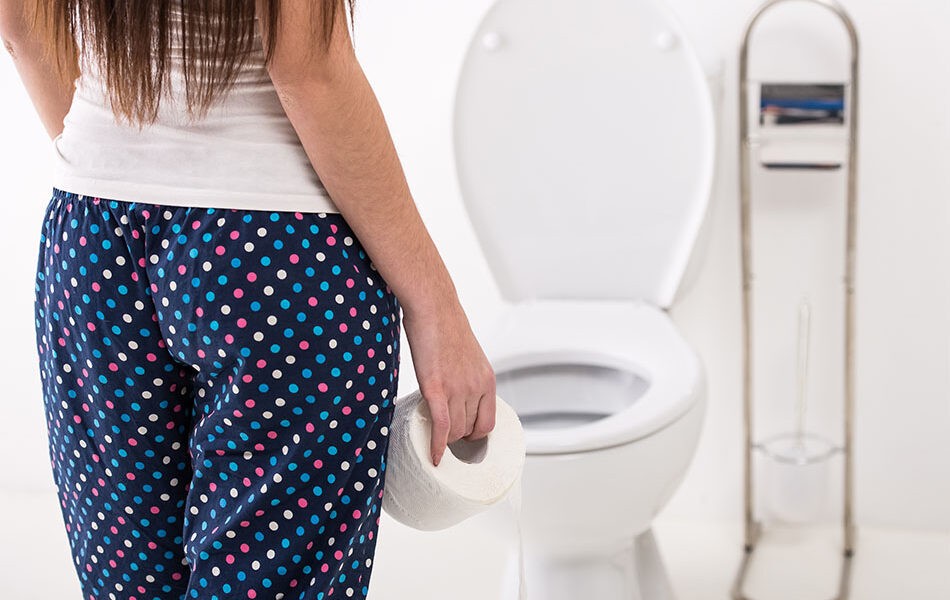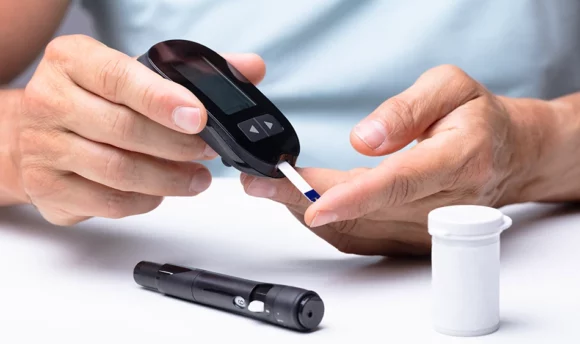Keto Poop: The Good, the Bad, and the Ugly Truth
Keto poop is a common side effect you may experience when starting the ketogenic diet. Read on to learn all about the potential digestive issues caused by keto and how to prevent them in the long term.

The ketogenic diet has several benefits, including supporting rapid weight loss and improving insulin sensitivity for people with diabetes.
However, it is also common for those on this low-carb, high-fat diet to experience digestive issues. This produces a phenomenon known as “keto poop,” which can affect the smell, appearance, and timings of your bowel movements.
Discover 3 things you need to know about keto poop, the impact on your bowel movements, and how you can prevent digestive issues while on this popular diet.
Keto Poop: Here’s What You Should Know
When making a sudden change to your diet, it is likely to have an impact on your digestive system. Starting the keto diet is no exception and can cause various gastrointestinal side effects.
Every person’s digestive system is unique, which means that while some keto dieters may experience diarrhea, others may experience constipation.
Here are 3 things you may notice about keto poop when you drastically reduce your carb intake.
#1 It can smell different
One of the most noticeable differences between regular and keto poop is the smell. This is because people on the ketogenic diet are encouraged to get 70–80% of their total daily calories from keto-friendly healthy fats.
Those suddenly switching to high-fat diets may find that their stools move through the gastrointestinal tract at a slower rate. If you try to lose weight through keto, your gut bacteria will struggle to break down the stool due to its high-fat content.
This causes a condition called steatorrhea, which may leave your poop smelling worse as it remains in the body for longer.
#2 It can look different
Keto poop is typically smaller and less bulky than regular poop due to the lack of fiber in a ketogenic diet.
You may also notice that your poop is a paler, more clay-like color due to the increase in fatty foods you consume.
Also, to help digest these fats, your body will create more green bile. Keto poop may therefore have a bright green or yellowish tinge.
#3 You may see blood
Keto poops often contain blood as a result of hemorrhoids, which develop due to veins in the anus and lower rectum becoming swollen.
This may happen due to keto constipation, a common occurrence for those who are new to the keto diet.
Spending extended periods sitting on the toilet puts excessive pressure on connective tissues between the veins, resulting in hemorrhoids that irritate the anus and the surrounding area.
Does Ketosis Make You Poop?
After switching to the keto diet, you may begin to experience more bowel movements each day. These can be loose or watery, and if you have more than 3 per day, this is classified as diarrhea.
Keto diarrhea can occur when the metabolic state of ketosis begins, as the body adapts to the presence of more fat and less fiber in the body than usual.
The digestive system may find it difficult to break down these fats quickly enough and will pull more water in to help with their passage. This results in diarrhea.
Studies have found that the bacteria in the gut alters after 3 months on the keto diet, negatively impacting the health of your gut microbiome and causing poor digestion.
This can lead to loose and liquid stools, although more research is needed to come to a full conclusion.
To avoid this, ensure you eat plenty of healthy fats, such as those in olive oil, butter, and cheese. Overconsumption of the wrong sources of dietary fats, including omega-3 and omega-6 essential fats, can cause diarrhea.
Another reason you may be experiencing diarrhea is that you are consuming an excessive amount of sugar alcohol while on keto, which can cause bloating, stomach cramps, and laxative effects.
Keto diarrhea may also occur if you are getting too much protein from dairy products, such as Greek yogurt and cream.
Although these are good, keto-friendly sources of protein, some people may have lactose intolerance or sensitivity, meaning they struggle to properly digest these products.
Can Ketosis Make You Constipated?
When your body first goes into ketosis, you are likely to become constipated. This is due to the sudden reduction in fibrous foods being consumed, as well as the increase in protein.
Carbohydrates should make up 5–10% of your total calorie intake per day to allow your body to enter ketosis. This is equivalent to approximately 20–50g of carbohydrates a day.
Fiber is a type of carbohydrate that aids in the process of digestion and is found in foods such as fruits, starchy vegetables, and whole grains. Therefore, consuming less fiber when on the keto diet can cause constipation.
Constipation is when you poop fewer than 3 times per week or find it difficult to empty your bowel completely. You may also notice that your poop is either abnormally large or small, as well as dry and hard.
Although the increase in protein on a keto diet can cause diarrhea for some, it may lead to constipation for others. This is because those starting keto often eat more dairy products to boost their protein intake as their carb consumption reduces.
Dairy products contain lactose, a sugar that removes enzymes that aid digestion. Therefore, you may experience constipation on the ketogenic diet until your enzyme levels rebalance.
Although this is an unpleasant side effect of keto, your constipation should clear up as your body adjusts to the new diet. This typically happens within a few weeks.
Stomach Cramps on Keto: Are They Common?
Within the first few weeks of following a keto diet, you are likely to experience stomach cramps while your body gets used to increased fat consumption.
You may also develop some flu-like symptoms as you transition to a low-carb diet, known as keto flu.
Keto flu occurs as the body breaks down fats as a fuel source rather than the glucose that is usually available from carbohydrates.
Therefore, the body uses ketones, a byproduct of fat breakdown, to fuel itself, which is referred to as ketosis.
The symptoms of keto flu vary from person to person and may include nausea, dizziness, and gastrointestinal issues such as diarrhea, constipation, and stomach cramps.
How to Prevent Digestive Issues While on Keto
The main way to prevent gastrointestinal issues caused by keto is by gradually transitioning to a low-carb diet. This gives the body time to adjust, meaning you are less likely to experience constipation or stomach cramps.
Firstly, you should concentrate on increasing your fiber intake. You could do this by taking the fiber supplement psyllium husk.
As an alternative to a fiber supplement, you may incorporate some high-fiber foods suitable for the keto diet. This includes high-fat keto foods such as chia seeds or avocados, which contain approximately 10 grams of fiber per fruit.
You could also add broccoli to your diet, which is one of the best keto-friendly foods as a non-starchy, low-carb, yet high-fiber vegetable.
Consuming plenty of vegetables also contributes to your water intake. Drinking plenty of water is essential for softening stools and preventing constipation.
If you are losing lots of fluids through keto diarrhea, you may have an electrolyte deficiency. You should consume electrolyte-rich supplements, foods, or fluids, including coconut water, spinach, and milk.
This is because electrolytes such as magnesium, potassium, and sodium are crucial for helping stools move through the digestive system properly.
Finally, adding fermented foods such as kimchi or sauerkraut into your diet is a great way of ensuring optimal gut health. They are a good source of natural probiotics, which contain good bacteria that fight off bad bacteria and restore balance in the gut.
A Word From a Nutritionist
Although the ketogenic diet has several benefits for those wanting to lose weight, suddenly switching to low-carb, high-fat meals can cause gastrointestinal issues such as stomach cramping, diarrhea, or constipation.
However, the negative side effects caused by keto are usually temporary, so don’t be concerned if your stools have a different color, smell, or consistency for 1–4 weeks after changing your diet.
If you do experience problems for more than 4 weeks, this could indicate an underlying problem with the bacteria in your gut.
In this case, you should seek treatment from a medical professional, who can exclude more sinister causes of your side effects and advise you on how to proceed safely. For instance, they may recommend an increase in water intake, fiber, or fermented foods.
Conclusion
When compared to regular bowel movements, keto poop can be a different color, have a stronger smell, and may contain some blood.
If you are hoping to minimize the negative side effects of the ketogenic diet, you should gradually reduce the number of carbs you consume and make sure to include plenty of fiber from low-carb sources.

















































 Select your language:
Select your language: 








